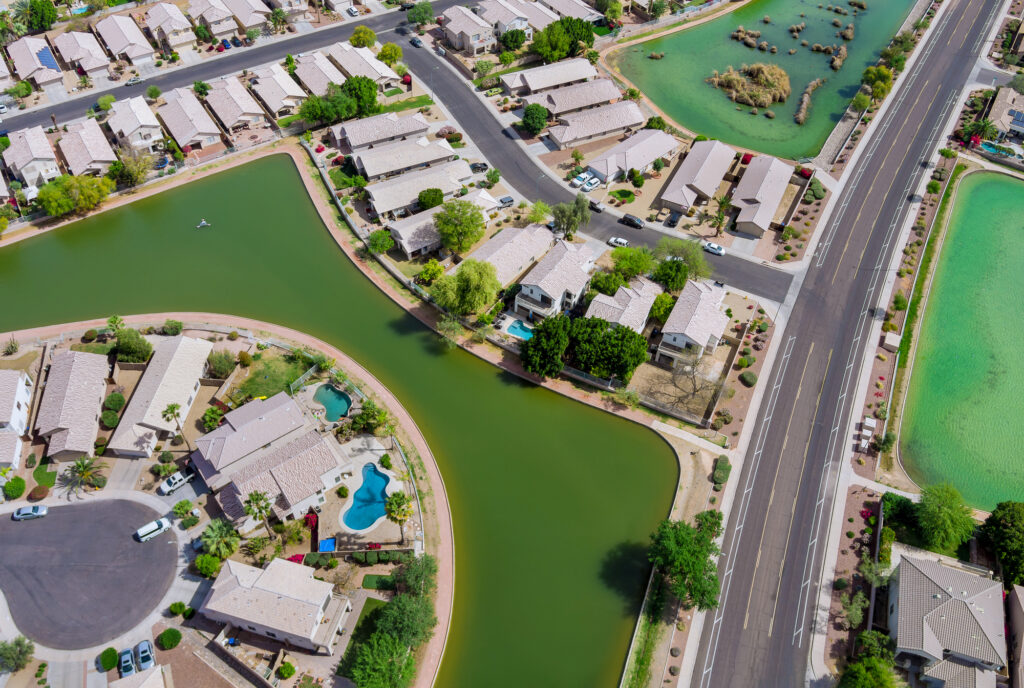
Arizona is experiencing rapid growth and economic opportunities, but it is also facing a water crisis that could hinder its growth and vitality. A recent report projected a 4% shortfall in groundwater supplies in the Phoenix area over the next century, leading the state to restrict new approval of groundwater-dependent residential development in fast-growing suburbs. Additionally, negotiations are underway regarding dwindling supplies from the Colorado River, which historically provided a significant portion of the state’s water.
To address this challenge, the Arizona Water Infrastructure Finance Authority is considering importing desalinated water from Mexico. This proposed mega-engineering project, conceptualized by IDE, an Israeli company with expertise in desalination, involves building a plant in Mexico and piping the water about 200 miles uphill to Arizona.
However, this project is expected to cost over $5 billion and provide water at a significantly higher cost compared to the current water drawn from the Colorado River, excluding long-term energy and maintenance expenses. The feasibility and details of this project are still unknown, and it is unclear how it aligns with Arizona’s plans for water investment since the state lacks a comprehensive water plan.
As experts in water law, policy, and management, we believe that projects like this should be considered as part of a broader water management strategy that addresses supply and demand imbalances holistically. Decision-makers should carefully evaluate the potential consequences and costs of such projects. We suggest looking to Israel’s approach to desalination as it offers valuable insights for Arizona.
Water engineering projects have caused significant ecological damage worldwide, which governments have had to invest heavily in repairing. Examples include the draining and straightening of the Florida Everglades, which harmed water quality and wildlife, and Israel’s failed attempt to drain the Hula wetlands, leading to land degradation and loss of biodiversity.
Arizona is currently facing a crisis due to gaps in water management and climate change. Groundwater withdrawals, particularly in rural areas, remain unregulated, including excessive pumping by foreign agricultural interests. With the Colorado River experiencing its 23rd year of drought, Arizona is being forced to seek alternative water sources and reduce its reliance on the river.
The proposed desalination plant in Mexico presents environmental concerns, as releasing highly saline brine into the Gulf of California could harm endangered aquatic species. Furthermore, the pipeline transporting desalinated water would pass through Organ Pipe Cactus National Monument, an ecologically sensitive area already impacted by border wall construction.
Israel’s experience in adapting to water scarcity and learning from past mistakes can provide valuable lessons for Arizona. Israel has a regularly updated water sector master plan that includes water recycling, reuse, and desalination. The country has also implemented extensive water conservation programs and has become a leader in water technology and policy innovation.
To address Arizona’s water challenges, we recommend mandatory statewide conservation programs, particularly in agriculture, where flood irrigation is common. Drip irrigation and other water-saving techniques should be encouraged. Residential water use for lawns and landscaping should also be addressed, along with regulations for groundwater use in the mining sector.
A proactive and holistic approach to water management should encompass all sectors of the economy, including industry. Arizona should continue expanding programs for wastewater reuse in agriculture, municipalities, and industries.
Desalination should not be disregarded entirely but should be considered as part of a comprehensive set of solutions, similar to Israel’s approach. By exploring alternative solutions economically, technically, and environmentally, Arizona can develop a more sustainable and secure water portfolio for the future it desires.
Leave a Reply